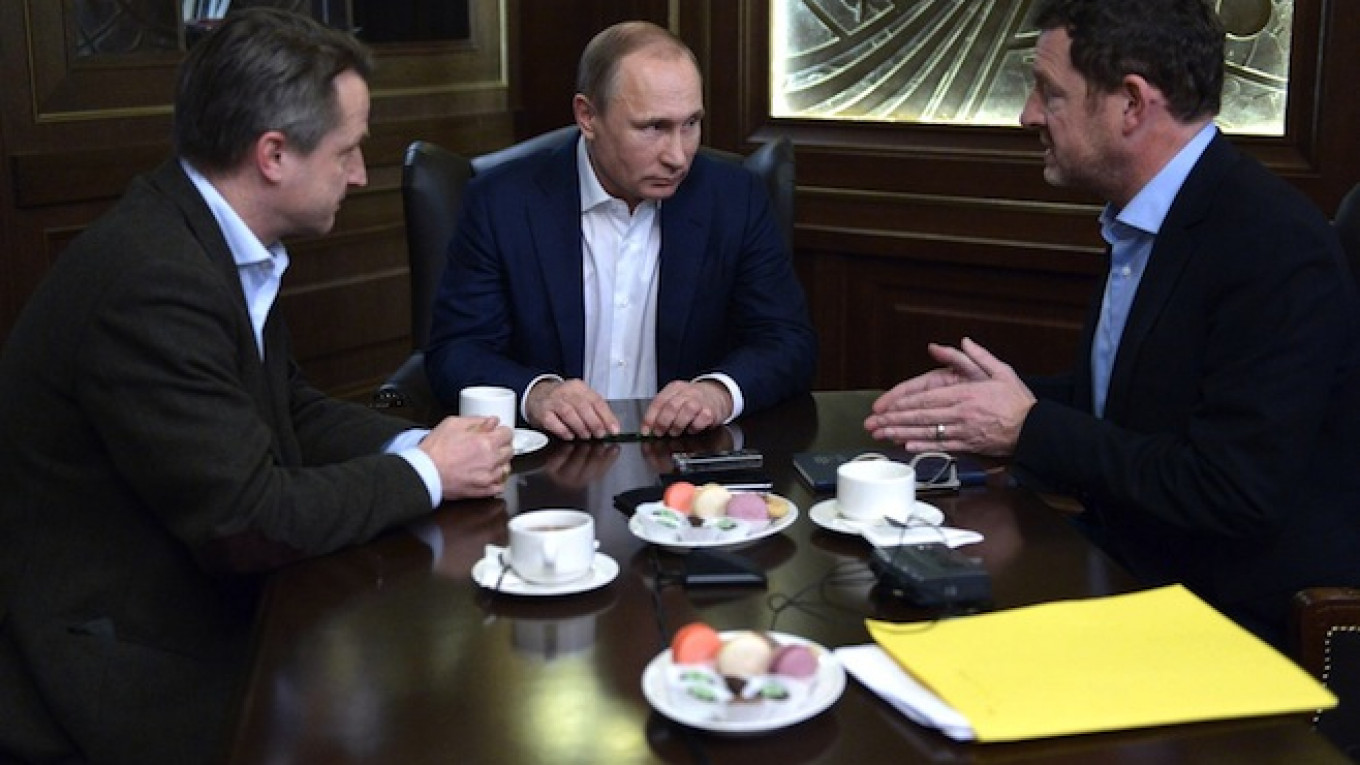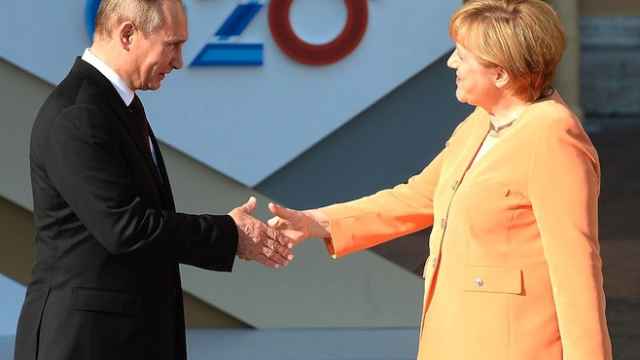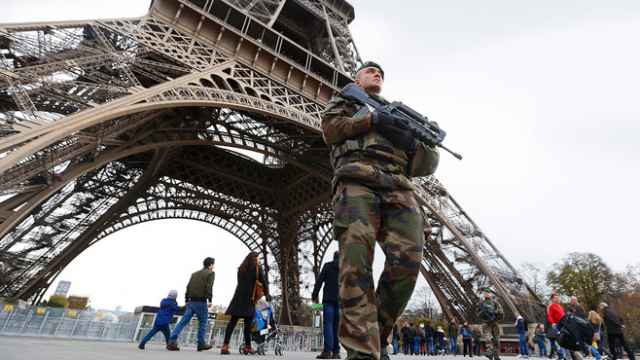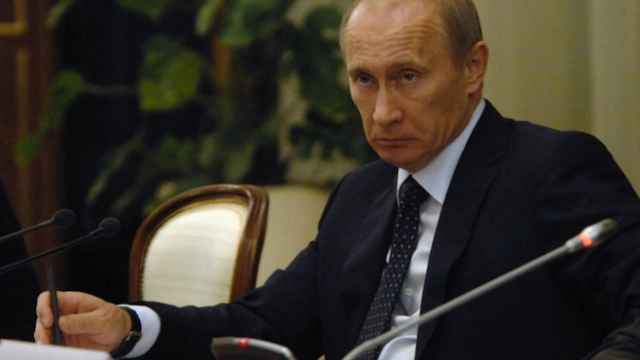The West and Russia never re-established a relationship of trust following the Soviet Union's collapse, President Vladimir Putin said in an interview published Monday, blaming past political failures for the most recent relationship crisis.
“Twenty-five years ago, the Berlin Wall fell, but invisible walls were moved to eastern Europe. This has led to mutual misunderstandings and assignments of guilt. They are the cause of all crises ever since,” he told the German newspaper Bild.
“We've done everything wrong,” he added.
Putin pointed toward NATO's eastward expansion for the cooling in Russia's relations with the West.
“NATO and the U.S. wanted a complete victory over the Soviet Union. They wanted to sit on the throne in Europe alone,” he said.
Putin also said Western sanctions imposed on Russia over its annexation of Crimea and its role in eastern Ukraine were aimed at “geopolitically pushing Russia back” — not at helping Ukraine.
Putin described the sanctions, which were extended by six months by the European Union in December, as “foolish” and “a theater of the absurd.”
He said sanctions were harming Russia's “possibilities on the financial markets,” but pointed toward the plunge in oil prices as the main reason for Russia's economic hardships.
The drop in oil prices, however, was also providing Russia with an opportunity to diversify its economy, Putin said.
“If you earn so many petrodollars, as we once did, that you can buy anything abroad, this slows down developments in your own country,” he said.
Putin was also asked by the German journalists whether he had deliberately taken his dog Koni to a 2007 meeting with German Chancellor Angela Merkel — an incident which some claimed was meant to intimidate her in a show of power. Putin denied the theory.
“I did not know that [she was frightened,]” he said. “I wanted to make her happy. When I learned that she does not like dogs, I apologized, of course.”
Contact the author at e.hartog@imedia.ru
A Message from The Moscow Times:
Dear readers,
We are facing unprecedented challenges. Russia's Prosecutor General's Office has designated The Moscow Times as an "undesirable" organization, criminalizing our work and putting our staff at risk of prosecution. This follows our earlier unjust labeling as a "foreign agent."
These actions are direct attempts to silence independent journalism in Russia. The authorities claim our work "discredits the decisions of the Russian leadership." We see things differently: we strive to provide accurate, unbiased reporting on Russia.
We, the journalists of The Moscow Times, refuse to be silenced. But to continue our work, we need your help.
Your support, no matter how small, makes a world of difference. If you can, please support us monthly starting from just $2. It's quick to set up, and every contribution makes a significant impact.
By supporting The Moscow Times, you're defending open, independent journalism in the face of repression. Thank you for standing with us.
Remind me later.






